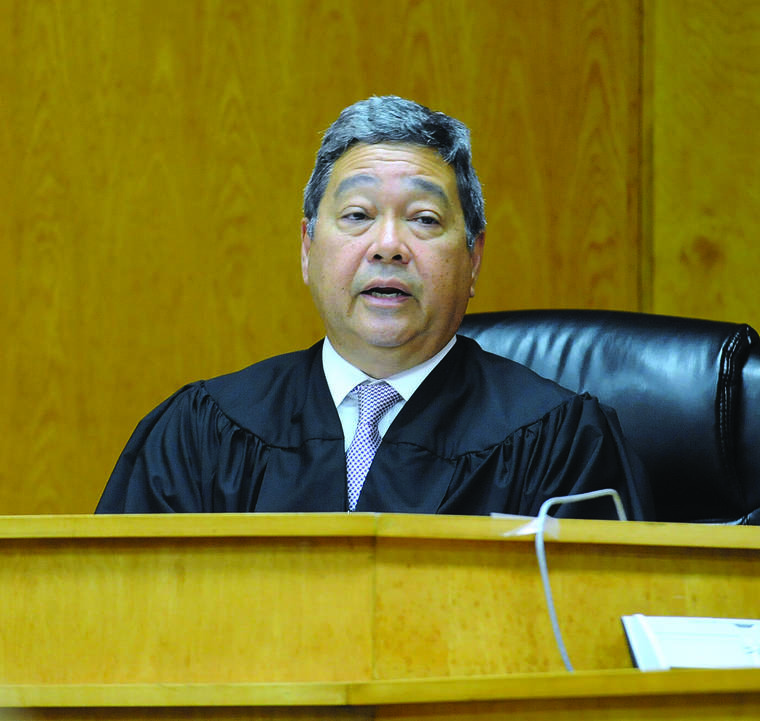KAILUA-KONA — Officer misconduct apparently sidelined a police witness in a drug case, and now a judge is set to rule today on whether the defendant in the case will stand trial.
Jose Miranda was charged in December 2017 with 11 counts of first-degree promoting a dangerous drug, class A felonies punishable by up to 20 years in prison. Two counts were dropped, and after four continuances, trial was set to begin on June 18. However, prosecutors filed a motion to dismiss all charges on May 16 due to the unavailability of a witness, a now-retired police officer whom the prosecution refused to identify.
Hawaii Police Department Chief Paul Ferreira also refused to provide prosecutors information regarding a police officer’s unavailability as a witness in the Miranda case, according to recently unsealed exhibits.
“I believe at this time your only course of action would be to ask for these cases to be dismissed without prejudice pending the outcome of any internal investigation and if the judge decides to dismiss with prejudice, it is within his authority,” Ferreira wrote in a May 16 email to Hawaii County Prosecuting Attorney Mitch Roth about the officer who was on leave without pay.
Ferreira based his concerns on disclosure, citing the review board had not yet determined the validity of the charges against the officer, later identified as Sean Smith, and was concerned about the potential consequences if his identity and nature of the charges were revealed.
He declared that by providing that information, Smith’s right to due process could have irreparable consequences. In addition, Ferreira stated Smith would need to be reinstated as an active officer so that he could provide the requested testimony. He also outlined Smith’s rights under the State of Hawaii Organization of Police Officers (SHOPO) Collective Bargaining Agreement.
The police department’s position was that information may be released to the public after the review board’s determination of recommendation.
On May 24, Circuit Court Judge Robert D.S. Kim took up the motion to dismiss, but continued it. He subsequently set an evidentiary hearing on the motion to dismiss to allow the court to investigate further to determine whether the case should, in fact, be dismissed, according to court minutes.
At that hearing, it was revealed that the witness was a sworn police officer, and the state could not provide their identity or the specifics of unavailability. Prosecutors suggested that they may hold an in-camera interview, which is closed to the public.
The hearing was continued.
The state then filed a motion to close to the public the evidentiary hearing on the state’s motion to dismiss.
Concerned with the public’s right to know, Kim held a public hearing on June 6 regarding the motion for the closed hearing where he listened to statements from attorneys and the general public weighing in on the subject.
After the public hearing, Kim granted an in-camera (closed) hearing for Police Chief Paul Ferreira, Prosecuting Attorney Mitch Roth and Deputy Corporation Counsel Lerisa Heroldt.
Recently released declarations and exhibits submitted for the closed hearing, reveal that Smith was on leave without pay while an internal investigation involving an officer-involved shooting case was conducted.
Smith was administratively charged with standards of conduct relating to truthfulness, subversive acts prohibited, firearms discharge and obedience to laws, written orders policies, etc. in connection with the 11-day manhunt for fugitive Walter Gomes III in late-March.
Ferreira placed Smith on leave in April, determining that his retention at the workplace or any other police facility in any capacity was detrimental to the conduct of the investigation and would compromise its integrity and operation of the department as allowed in the SHOPO collective bargaining agreement.
The investigation was turned over to the police department’s Administrative Review Board to determine the validity of the charges and to recommend any appropriate disciplinary action.
On July 2, the review board released its report finding that Smith, on or about March 21, fired two rounds using his personal supplemental firearm in a private driveway in the area of Akoni Pule Highway and Camp 17 Road in North Kohala.
At the time, the identity of the officer who fired their weapon was unknown. The court filings indicate Smith subsequently lied to his supervisor when asked if he fired the shots.
An ammunition count was conducted and it was discovered that all rounds were accounted for. It was later found that Smith replaced the ammunition so he would not be identified as the officer who discharged the spent rounds, according to the court documents.
The board, which is composed of ranking Hawaii Police Department officers, unanimously voted to recommend Smith’s discharge from the department, with Ferreira concurring with the findings.
However, Smith retired on May 31, before any disciplinary action was taken. Ferreira, in a July 2 declaration to the court, said he received notice of Smith’s application for retirement on May 20 effective June 1.
No criminal charges were filed.
On July 30, after the closed hearing, Kim ordered the release to the public of a redacted copy of the in-camera submission made by Ferreira, Roth and Heroldt.
Prosecutors withdrew the motion to dismiss the following day.
Deputy Chief Kenneth Bugado restated the department’s position on Smith’s internal investigation.
“I can unequivocally state that any type of Police misconduct carries with it a stigma and burden that all Police Officers are made to bear,” he wrote. “In this matter it is important to note that our department bought the issue to light and as we do for all investigations, criminal and administrative, we strive to conduct the investigation in a fair, impartial, and thorough manner. An Employee’s decision to retire vests solely with the employee. Any retirement eligible employee who whether being investigated or not, may file for retirement. However, we do not stop our investigation based on an employee’s cessation from employment.”
Kim will rule today on the prosecution’s withdrawal of the motion to dismiss, and decide if the trial will move forward.






